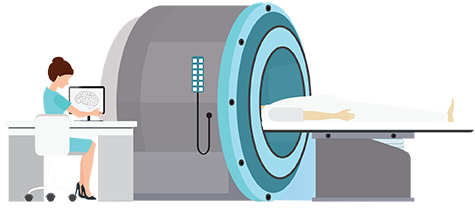

Why become a radiologic technologist? As a healthcare professional in this field, you can play an important role in patient care by doing diagnostic imaging on patients through X-rays or computed tomography, known as CT, according to the Bureau of Labor Statistics (BLS). Why is this so important? Doctors, ranging from emergency room providers to surgeons, can use these images to help determine if a patient is ill and what the best course of treatment should be.
Radiologic technologists in Georgia and throughout the country have many important job responsibilities. In addition to helping maintain equipment, they need to know how to correctly position patients so that the needed images can be obtained, while protecting them from unnecessary radiation. Specific tasks may vary depending on what aspect of radiology you study, and there is an interesting range of jobs in the field of radiology, including:
Here is a list of Georgia schools that offer courses and programs in radiology and related subjects, according to the National Center for Education Statistics:
While the typical entry-level education for a radiology position may vary based on your specialty, the BLS reports that to become a radiologic tech one typically needs an associate degree, though a bachelor’s degree might also be required. Many radiologic technology schools in Georgia and elsewhere offer multiple programs, but whatever level you choose, you may want to consider enrolling in a program that is accredited through the Joint Review Committee on Education in Radiologic Technology (JRCERT). That’s because some states do require graduation from an accredited program to allow applicants to become licensed.What can you learn in a radiologic technologist program? In addition to hands-on clinical education, classes may include:
Radiologic technologists are not required to be licensed in the state of Georgia, according to the American Society of Radiologic Technologists (ASRT), but licensing is necessary in many other states. If you plan to work in a state other than Georgia, you may want to prepare for licensing by taking the national exam offered through the American Registry of Radiologic Technologists (ARRT). This exam is accepted as part of the licensing process for 37 states. In Georgia, you may want to consider joining the Georgia Society of Radiologic Technologists, Inc. This society offers scholarships, educational opportunities, information about legislation and networking opportunities.
The table below shows the average annual pay for professionals in radiology careers, as well as the number of people employed in each field, according to the BLS. Keep in mind that salaries might vary depending on your employer and where in the state of Georgia you work.
| Career | Total Employment | Annual Mean Wage |
|---|---|---|
| Cardiovascular Technologists and Technicians | 1,790 | 53,230 |
| Diagnostic Medical Sonographers | 1,770 | 63,150 |
| Magnetic Resonance Imaging Technologists | 1,040 | 64,060 |
| Nuclear Medicine Technologists | 560 | 71,650 |
| Radiologic Technologists | 5,280 | 55,100 |